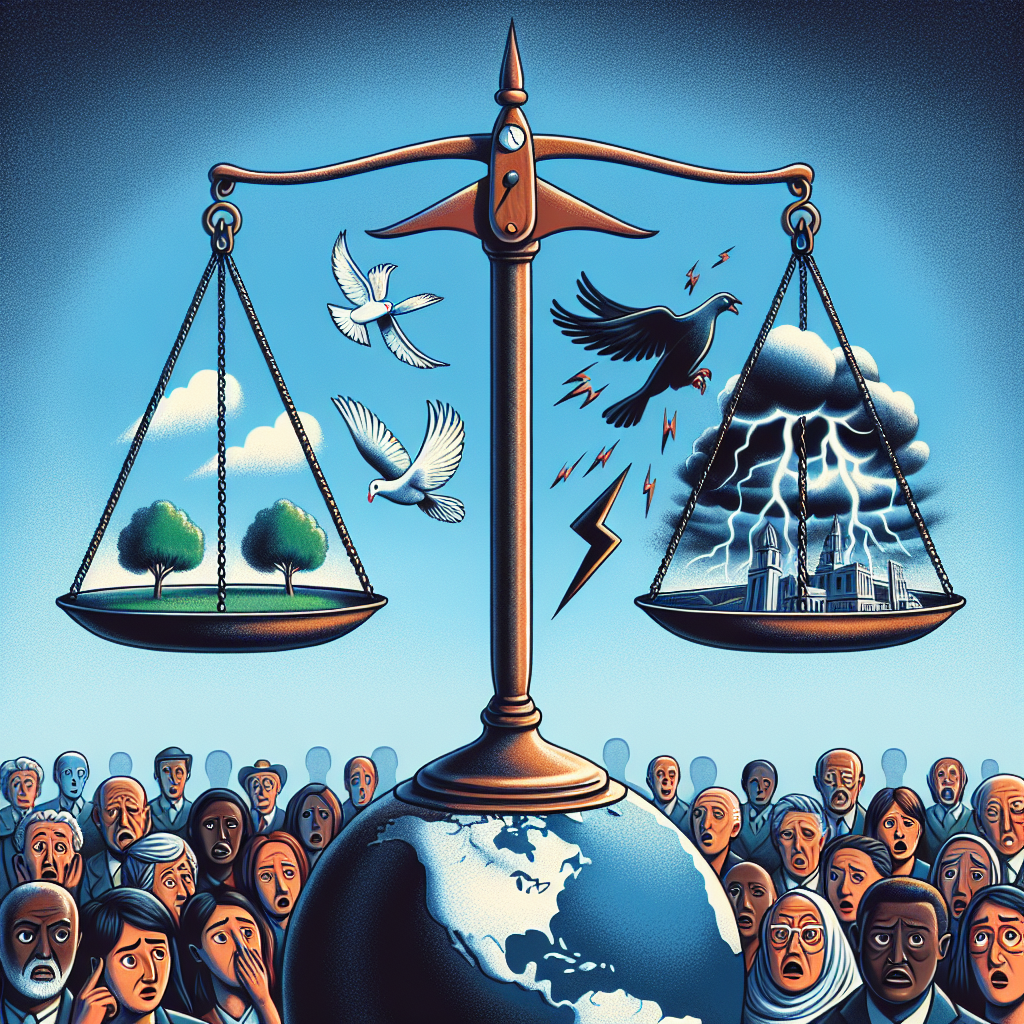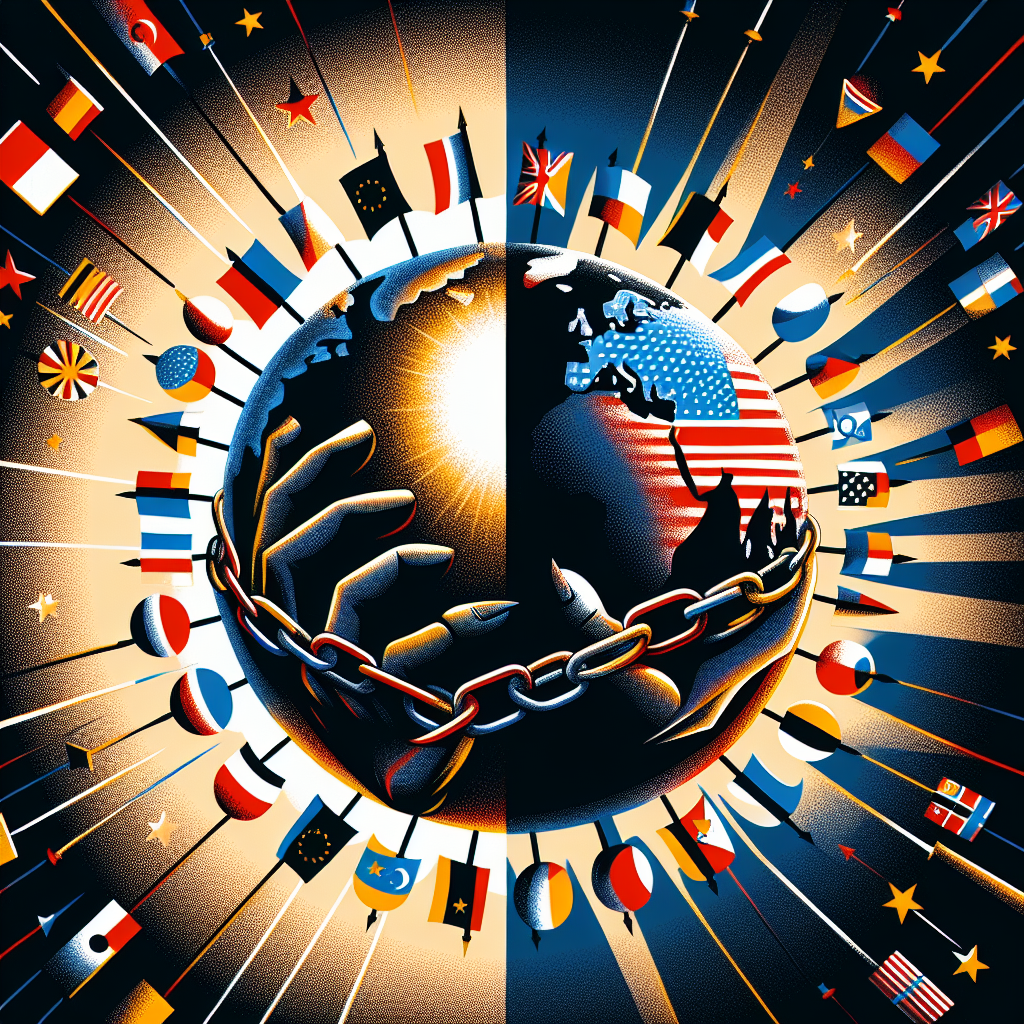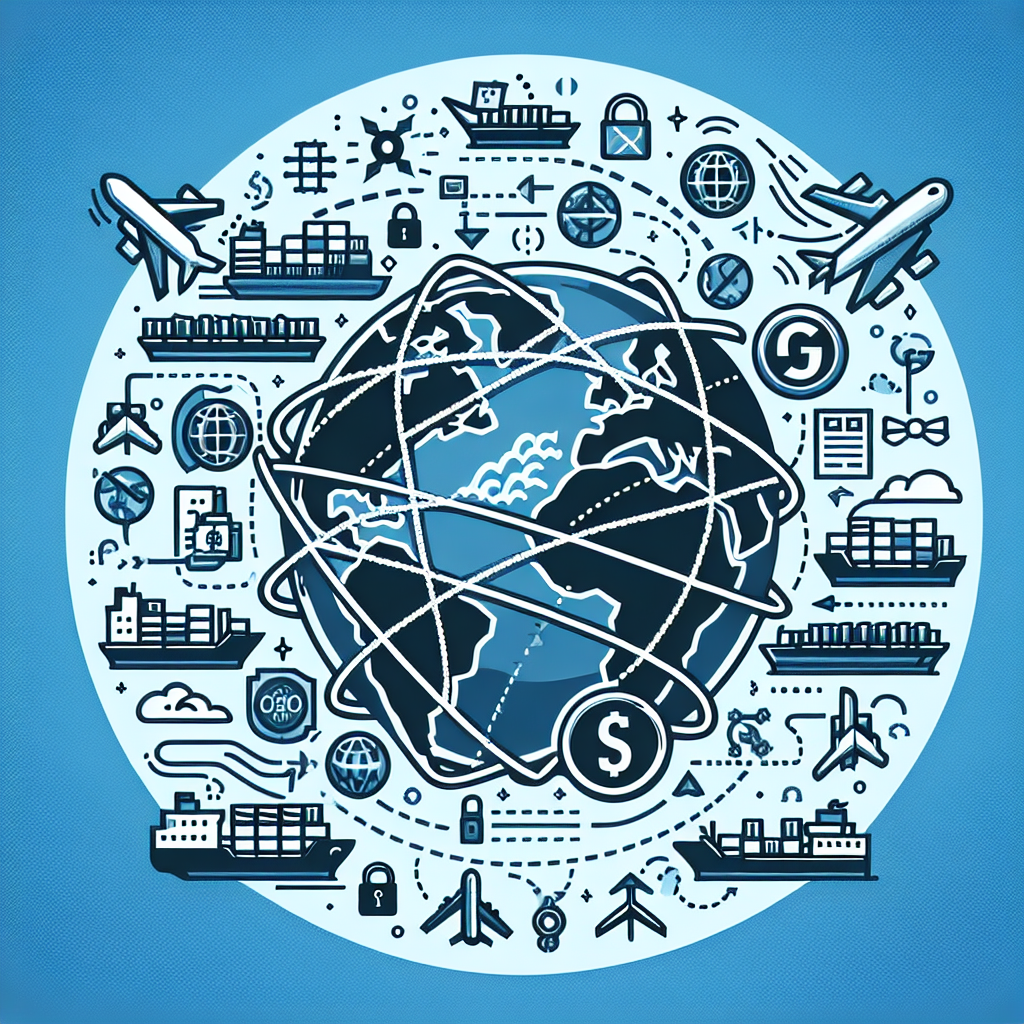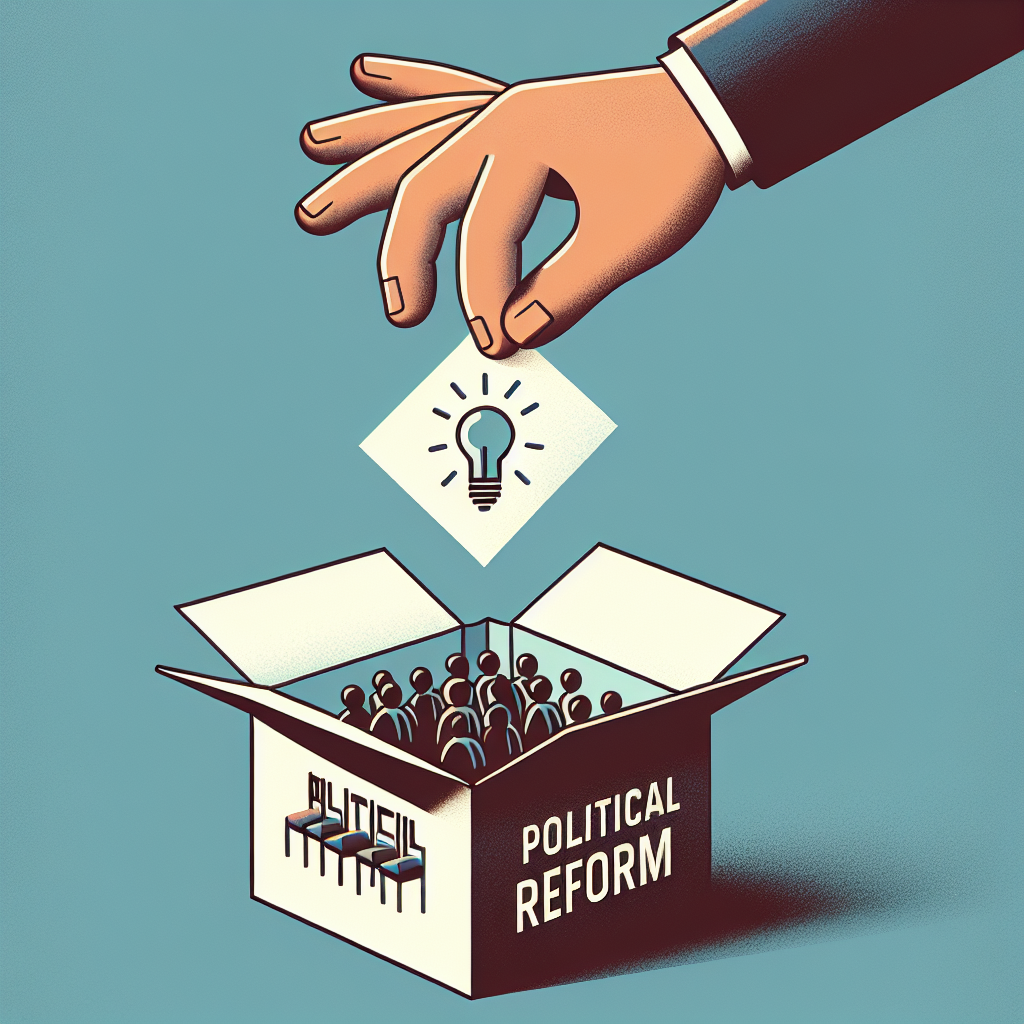
Introduction
In the tumultuous landscape of political discourse, the balance of power is often fluid, especially during crises. As we navigate through 2025, events like the ongoing global economic uncertainties, climate emergencies, and health crises have showcased how political opinions can shift dramatically. During these times, citizens’ beliefs, support for leaders, and alignment with political parties can dramatically transform, influencing the decisions and policies that shape the trajectory of nations. Understanding how these shifts occur is vital for both political analysts and the public, as they underscore the relationship between governance and societal dynamics during turbulent times.
Understanding the Dynamics of Political Opinion Shifts During Crises
Crises have a unique capacity to influence public perceptions and political opinions. When significant events unfold—be they natural disasters, health pandemics like COVID-19, or economic recessions—the immediate impact often results in elevated stress levels among the populace. This heightened anxiety can lead to a collective reevaluation of existing political beliefs. For example, during the COVID-19 pandemic, many people began to view governmental intervention through a different lens. Where there might have been a prior skepticism of government involvement, the necessity for health policy and economic support transformed opinions dramatically, often increasing support for initiatives aimed at federal support or regulatory measures.
Moreover, crises expose the strengths and weaknesses of leadership, impacting the public’s trust in those in power. In 2025, leaders who navigate these treacherous waters successfully can gain significant approval ratings, while those who falter can see a swift decline in their support. For instance, during the global economic downturn, a government recognized for prompt and effective financial relief may boost its standing, enhancing public opinion. Conversely, a slow or inadequate response can exacerbate dissatisfaction and shift opinions toward more radical alternatives, often fostering a rise in populism or third-party movements.
The Role of Media in Shaping Political Opinions
In a crisis, information dissemination becomes critical. The role of traditional and social media cannot be overstated, as they serve as primary sources of information for the public. By framing narratives, emphasizing certain issues, and highlighting specific political responses, media has the power to influence how individuals perceive their leaders and the actions taken in response to crises. In 2025, we see media wielding this power in several prominent instances, from climate change reporting to economic recovery efforts, effectively guiding public sentiment and trust.
Additionally, the rise of social media platforms has democratized the flow of information. Individuals are no longer passive consumers; they actively engage in political discussions, and their voices can often challenge mainstream narratives. This dynamic can lead to rapid shifts in public opinion, as grassroots movements gain traction and alternative viewpoints find prominence. In times of crisis, social media can act as a double-edged sword—empowering citizens while simultaneously enabling misinformation, affecting how strongly and swiftly public opinion shifts during critical moments.
Crisis Impact on Voter Behavior and Party Dynamics
The way crises influence voter behavior is multifaceted and can vary significantly based on the nature of the crisis and the political landscape of the time. For example, economic crises can lead to significant shifts in party loyalty as constituents lose faith in the traditional parties’ ability to govern effectively. In the context of 2025, we are witnessing a noticeable shift of younger voters aligning with progressive parties. As traditional parties appear sluggish in addressing climate change and economic inequality, the urgency created by a multifaceted crisis fosters these shifts as voters seek alternatives that resonate with their values and concerns.
Furthermore, crises can exacerbate the polarization within political parties. Moderate factions may find themselves overshadowed by more extreme elements that demand urgent action in response to changing circumstances. The 2025 elections showcased this trend, revealing a rise in radical ideologies as voters grew disillusioned with established political norms. Numerous parties have quickly adapted their platforms to address the pressing crises, attempting to capture the sentiment of an increasingly restless electorate. This evolution underscores the relationship between political opinion, party dynamics, and the crises that shape them.
Another critical aspect influencing voter behavior during crises is the issue of trust in government. A key takeaway from 2025 is that crises can lead to a re-evaluation of government performance and accountability. Citizens are more likely to critically assess the effectiveness of their leaders, demanding transparency and measurable results in times of uncertainty. This can lead to significant changes in electoral outcomes, as demonstrated in recent polls where candidates known for strong crisis management gained increased support compared to their opponents lacking a proven track record.
The Psychological Factors Behind Political Opinion Shifts
Understanding the psychological underpinnings of political opinion shifts during crises is essential for grasping how public sentiment evolves. Psychological theories, such as social identity theory, suggest that during crises, individuals often seek to reaffirm their sense of belonging and identity, often aligning their views with those perceived as part of their in-group. This phenomenon leads to increased tribalism in political affiliations, where individuals may prioritize loyalty to their party or group over more nuanced or centrist views. As crises intensify, so does this in-group loyalty, resulting in pronounced opinion polarization.
Moreover, the concept of cognitive dissonance also plays a significant role in shaping political opinions during crises. People experiencing discomfort from competing beliefs often seek to align their views to resolve that dissonance. In times of crisis, individuals may rationalize their previous support for certain leaders or policies while reconciling new experiences or information that starkly contradict previous views. This cognitive adjustment can lead to a rapid realignment toward parties or candidates who embrace and communicate responses aligned with a populace’s experiences and immediate concerns.
The emotional aspects of crises cannot be overlooked, as fear, anxiety, and hope serve to influence political opinions profoundly. Research demonstrates that voters react more positively to leaders who embody a sense of stability and empathy during crises. As we move through 2025, political figures who successfully convey understanding and action-oriented responses tend to garner greater support, reinforcing the notion that political opinions are not merely based on policies but are intrinsically linked to emotional connections with leaders.
Looking Ahead: Future Implications for The Balance of Power in Politics
As we contemplate the implications of shifting political opinions amidst crises, it becomes clear that the further evolution of political landscapes will continue to be influenced by environmental, economic, and social factors. The increasing occurrence and complexity of global crises pose challenges to traditional forms of governance, requiring adaptive strategies for effective leadership. Professionals in political science predict that these shifts could foster a new political realism as leaders prioritize pragmatic solutions over purely ideological stances, altering the balance of power.
Moreover, electoral systems and democratic processes may need to evolve alongside these shifts. As public trust in traditional political institutions wanes, there may be calls for reforms that enhance transparency and representation. The potential rise of third-party candidates, as seen in recent elections, may signify a growing desire for diverse perspectives that more accurately reflect the electorate’s concerns. It remains to be seen how these dynamics will reshape electoral strategies and party platforms in 2025 and beyond.
Finally, the impact of crises on political opinion will likely have long-lasting effects that extend beyond immediate elections. The evolution of public opinion during crises has the potential to forge new political identities and movements, leading to shifts in values and priorities that may redefine party alignment for years to come. Engaging with these changes thoughtfully and inclusively will be imperative for leaders who wish to maintain a balanced power dynamic and ensure that public sentiment is reflected in policy outcomes moving forward.
Conclusion
The balance of power in politics is undeniably influenced by the shifting landscape of political opinions during crises. As we explore the intersections of societal dynamics, media roles, voter behavior, psychological factors, and future implications, it becomes clear that adapting to these shifts is crucial for effective governance. Political leaders must remain attuned to the nuances of public sentiment and leverage their responses to crises as opportunities to strengthen trust and transparency. As we move through 2025 and face inevitable challenges ahead, understanding the mechanisms that drive political opinion will empower citizens and leaders alike to navigate an increasingly complex political landscape.
FAQs
What are the main factors influencing political opinion shifts during crises?
The main factors include media influence, psychological dynamics, voter behavior changes, and the intrinsic relationship between crisis management and public trust in political leaders.
How does the media play a role in shaping political opinions during crises?
Media plays a critical role by framing narratives and disseminating information. It’s a gateway through which citizens gain knowledge and develop opinions about political responses to crises.
What psychological factors contribute to opinion shifts during crises?
Psychological factors such as social identity, cognitive dissonance, and emotional responses like fear and hope significantly shape how individuals realign their political views during challenging times.
How can we anticipate changes in political behavior due to ongoing crises?
By observing patterns in public sentiment, media narratives, and leadership effectiveness, we can predict possible shifts in political allegiance and the emergence of new political movements.
What long-term implications may arise from current crisis-driven political opinion shifts?
Long-term implications may include alterations in party platforms, increased calls for electoral reforms, and the potential rise of third-party candidates that represent diverse viewpoints within the electorate.
Democracy versus Autocracy: A Global Perspective
16. Dezember 2025The Impact of Sanctions on Global Trade Dynamics
16. Dezember 2025Geopolitical Tensions in the South China Sea
16. Dezember 2025
Leave a reply Antwort abbrechen
-
From Underdogs to Champions: Upsets That Shocked the Soccer World
30. November 2025 -
The Importance of Cross-Training in Preventing Sports Injuries
7. Dezember 2025 -
Redefining Governance: The Case for Innovative Political Reforms
30. November 2025





